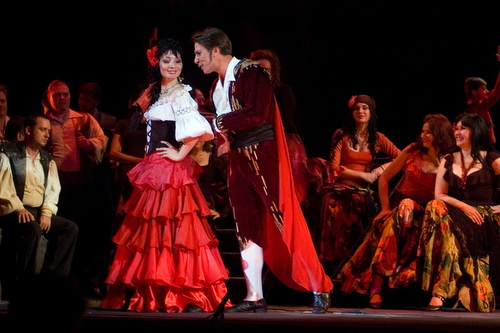22-26 February Carmen at the Bolshoi
Carmen is an opera in four acts by the French composer Georges Bizet. The libretto was written by Henri Meilhac and Ludovic Halévy, based on a novella of the same title by Prosper Mérimée. The opera was first performed in Paris in 1875. Initially it was coolly received and as Georges Bizet died suddenly he knew nothing of the opera’s later fame.
Written in the genre of opéra comique with musical numbers separated by dialogue, the Opera tells the story of the downfall of Don José, a naïve soldier who is seduced by the fiery Gypsy, Carmen. José abandons his childhood sweetheart and deserts from his military duties, yet loses Carmen’s love to the glamorous toreador Escamillo, after which José kills her in a jealous rage.
The depictions of proletarian life, immorality and lawlessness, and the tragic death of the main character on stage, broke new ground in French opera and were highly controversial.
Carmen initially gained its reputation through a series of productions outside France and is one of the most frequently performed operas; the «Habanera» from act 1 and the «Toreador Song» from act 2 are among the best known of all operatic arias.
Carmen forms the bridge between the tradition of opéra comique and the realism or verismo that characterised late 19th-century Italian opera.
The music of Carmen has been widely acclaimed for its brilliance of melody, harmony, atmosphere and orchestration, and for the skill with which Bizet musically represented the emotions and suffering of his characters.
Carmen premieres at the Bolshoi on June 15th and will be presented with one interval. The opera will be sung in French.

